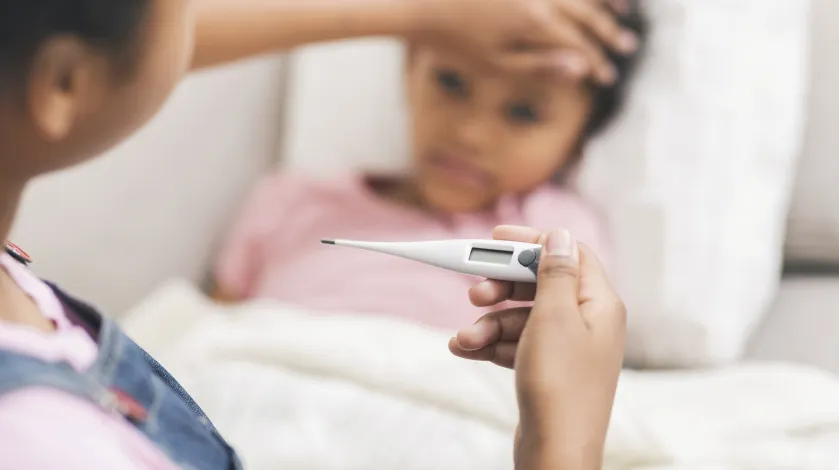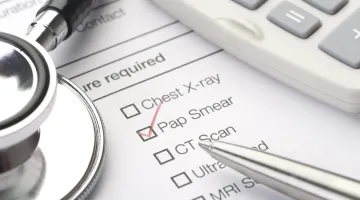The New Pediatric Inflammatory Syndrome Linked to COVID-19
Author

South Shore Health
When infectious diseases make headlines, parents naturally get a little worried.
When those headlines become the only news stories for weeks on end, it is safe to say that being a little worried becomes a constant reality.
By and large, though, throughout this pandemic, one thing that has been observed is that children remain among the least affected population from COVID-19 and typically suffer only mild symptoms when infected.
Global news stories over the last few weeks, however, have shifted that observation into a growing concern.
A new syndrome that may be related to COVID-19 is emerging in children and is presenting similarly to other inflammatory conditions like Kawasaki disease and toxic shock syndrome.
Pediatricians and infectious disease specialists around the country are focusing their efforts on learning more about this rare but concerning condition known as Pediatric Multi-System Inflammatory Syndrome (PMIS).
What is PMIS?
Pediatric Multi-System Inflammatory Syndrome—or PMIS (and sometimes called PIMS) for short—describes a new health condition seen in children of all ages, from infants to older teenagers, who have potentially been infected with COVID-19, recovered from it, and later have an immune response that results in significant levels of inflammation in many organ systems.
Early observations of PMIS cases have found children who have it generally did not have obvious symptoms when they were infected with the novel coronavirus, like cough.
Generally, they were healthy prior to developing PMIS.
Though the information available surrounding PMIS is still extremely limited due to the small numbers of cases compared with the numbers of people affected by COVID-19, many doctors believe this syndrome is the result of a lingering, overactive immune system response which can appear in children days or even weeks after a mild (or even asymptomatic) COVID-19 infection.
Jeremy Warhaftig, MD, Chief of the Pediatric Department of South Shore Medical Center, recognizes the concern that parents may have surrounding this novel inflammatory syndrome.
“While I want to reassure parents that this is extremely uncommon, I strongly encourage you to keep an eye out for potential symptoms,” says Dr. Warhaftig. “Any parent who finds their child to have a high fever and seems generally ‘unwell’ should call their pediatrician and seek medical attention right away.”
What are the symptoms of PMIS?
Because there are still so many unknowns about the condition, parents of children who have any new onset of unusual symptoms should seek pediatric care rather than assuming that it might be a sign of a typical childhood illness.
Symptoms of this novel pediatric inflammatory syndrome may include the following:
- A prolonged fever lasting more than five days
- Severe abdominal pain, diarrhea, or vomiting
- Patchy blue or pale skin discoloration
- Cracked lips or red tongue
- Trouble breathing or rapid breathing
- Lethargy
- Rapid heart rate
“The evidence at this point suggests most children will fully recover with proper supportive care,” says Todd Ellerin, MD, Director of Infectious Disease at South Shore Health. “The serious inflammatory syndrome sending some children and teens to the hospital remains extremely uncommon.”
Is PMIS contagious?
PMIS is not contagious.
In our earliest observations it has been determined that in order to have PMIS, a child must have had COVID-19 previously. It is believed that for one to have the antibodies for COVID-19, a patient must be past the contagious stage of the disease.
However, there have been cases of PMIS in children who tested negative for both COVID-19 and the presence of COVID-19 antibodies, meaning they likely hadn't been exposed to the virus.
This has added to the mystery surrounding this new syndrome.
What is the treatment for PMIS?
The goal of treatment for PMIS is to reduce inflammation to avoid any long-term damage to arteries in the child’s body and heart.
Treatment is similar to that used for Kawasaki disease, an illness that causes inflammation (swelling and redness) in blood vessels throughout the body.
Treatments have included steroids, intravenous immunoglobulin, high-dose aspirin, and antibiotics, as well as supportive oxygen through the nose, a mask or, in the most serious cases, a ventilator.
If I think my child has PMIS, what should I do?
Parents who suspect their child may have PMIS should contact their pediatrician immediately. Families are likely to be able to obtain an initial screening quickly.
At South Shore Medical Center, our pediatric clinical team is devoted to finding out more information about PMIS and will continue to release timely information to families.
Any child experiencing serious illness should be taken to an emergency room.
South Shore Medical Center offers pediatric care in both Norwell and Kingston and now offers the availability of virtual visits in an effort to provide quality care as conveniently as possible.
Author

South Shore Health







